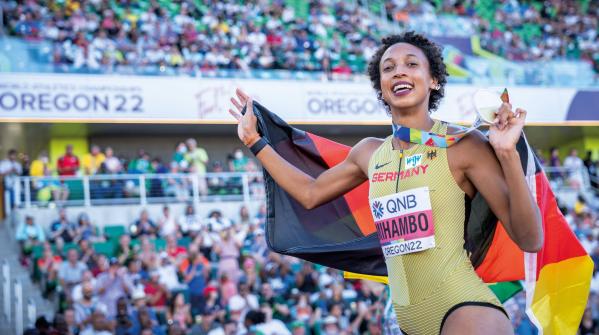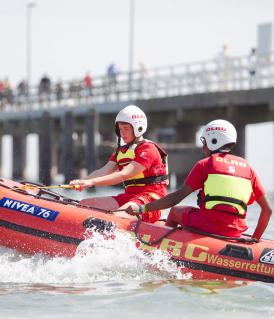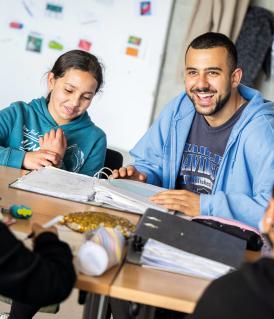Sporting Challenges

Germany is a country of sports enthusiasts and a successful sporting nation. In the all-time Olympic Games medal table, Germany ranked third with more than 1,800 medals in 2025 - behind only the US and Russia. Some 27 million people in Germany belong to the country’s 90,000 or so sports clubs. In addition to their sporting activities, these clubs have an important function in promoting participation and socialisation, particularly in the areas of youth work and integration. Almost all clubs have people from migrant backgrounds in their teams.
How sport promotes integration
The “Integration through Sport” programme is funded jointly by the German Olympic Sports Confederation (DOSB) and the Federal Office for Migration and Refugees. It acknowledges how migration enriches Germany’s sporting landscape. The DOSB is an umbrella organisation for sport in Germany and sees itself as the largest civilian movement in the country. It funds both elite and mass participation sports. With around 7.8 million members, the German Football Association (DFB) also belongs to the DOSB.
How strong German football is
The Bundesliga is the shining light in German sport. As the top flight of German football, it is considered one of the most competitive leagues. Germany’s national men’s and women’s teams are among the most successful teams in the world. Alongside football, popular sports in Germany include:
- winter sports
- basketball
- gymnastics
- athletics
- handball
The Stiftung Deutsche Sporthilfe has played a major role in much of Germany’s sporting success through its support for around 4,000 athletes each year. Another major area of its work concerns supporting and funding athletes with disabilities. Such sportswomen and men from Germany have enjoyed high levels of success in international competition and the Paralympics.
How sport in Germany is used to foster international understanding
German sporting organisations are working through the International Sports Promotion programme to help develop sport in several countries in the Global South. The Federal Foreign Office is a partner in the programme. Over 2,000 short and long-term projects have been delivered in over 150 countries since the early 1960s.


